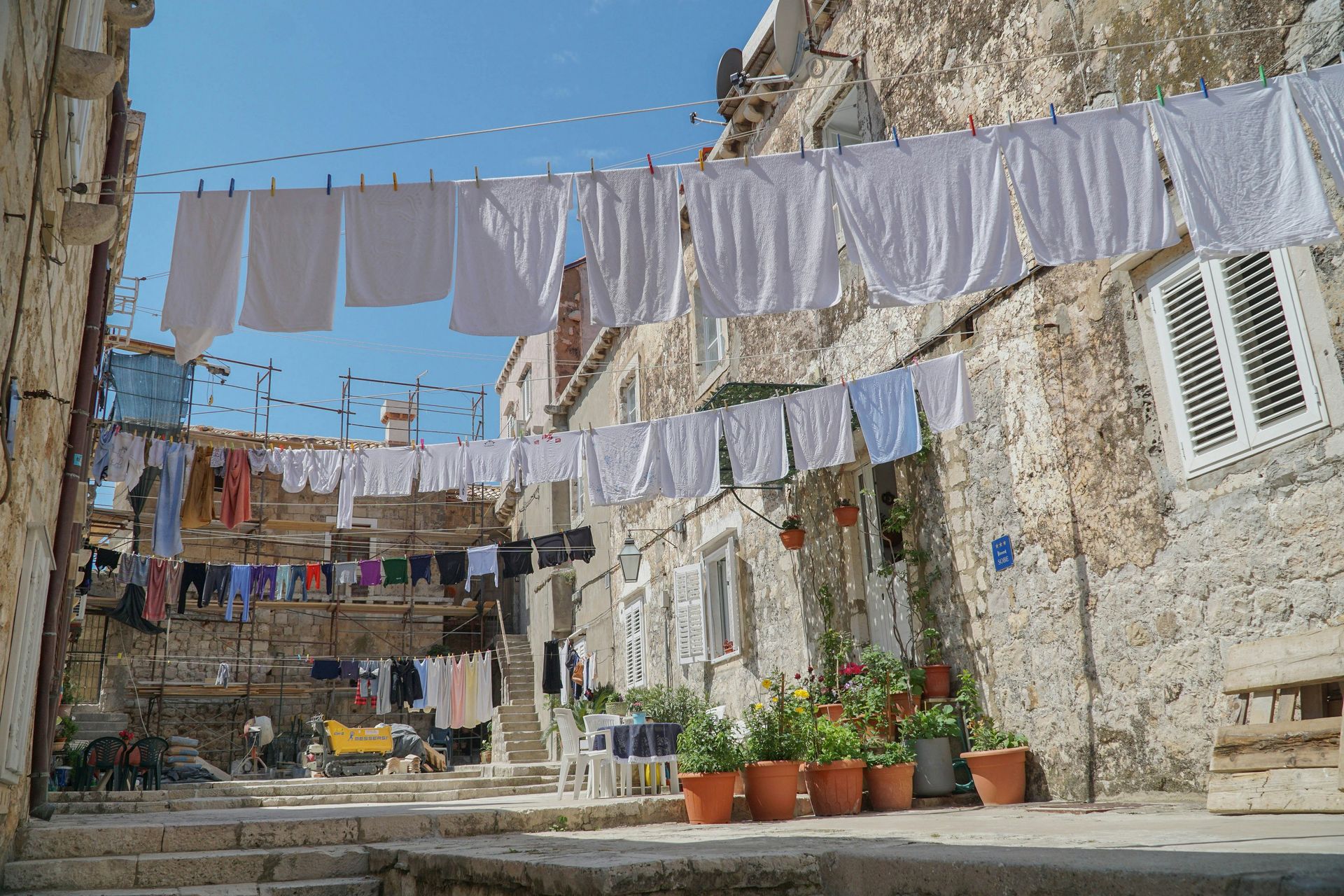When the sun starts to disappear more and more in late autumn, warm winter clothing is back in demand. If sustainability and durability are important factors in your wardrobe, alpaca wool, organic cotton and similar materials come into their own. However, if these are in constant use, they also require special attention in terms of proper care. As always, proper care extends the wearability of clothing – and thus puts environmental responsibility into practice.
Why is proper care so important?
Many fabrics used in high-quality winter clothing are truly natural talents. They are breathable, feel soft and comfortable against the skin, and keep you warm. Proper care is essential to ensure that they remain this way for a long time and continue to perform well in cold temperatures. Incorrect or inadequate care can lead to faster wear and tear and cause the material to change. In the case of functional clothing, this can lead to a loss of water-repellent and heat-regulating properties, while in the case of wool, it can lead to shrinkage, felting or stretching. In addition, proper care supports sustainability and is easy on the wallet and, in the case of plant-based and biodegradable detergents, also on the environment.
Winter care for sustainable materials
In winter, appropriate clothing can protect you from the bitter cold. But what is appropriate clothing? When combined with a layeredlook, summer clothing can also become functional clothing. After all, breathable properties are an advantage in every season. Here are four materials that are ideal for cold temperatures, including tips for gentle care:
- Alpaca wool: This luxurious natural fibre is soft, warm and hypoallergenic. To preserve its positive properties, it should be washed as infrequently as possible – often, simply airing it out is enough to get rid of unpleasant odours. If washing is necessary due to stubborn stains, we recommend hand washing in lukewarm water. Ideally, alpaca wool should be washed with a gentle wool detergent and laid out on a towel to dry. If your alpaca wool jumper or jacket is going to be stored in the wardrobe during the summer months, it is best to keep it in a cotton garment bag to prevent it from losing its shape on a hanger. Tip: Adding a little lavender or cedarwood not only gives it a pleasant scent, but also keeps clothes moths away.
- Organic cotton: It is rightly considered easy to care for, but it is definitely worth taking a few factors into account: for example, it should not be washed at temperatures higher than 40 degrees. Mild detergents without brighteners enable gentle cleaning. Air drying is also recommended for organic cotton , as it reduces the risk of shrinkage and also saves energy. This approach ensures that shirts and other items remain attractive, retain their shape and are comfortable to wear for a long time.
- Tencel™: Known for its smooth and elegant surface and good breathability, Tencel™ or Lyocell is also a wonderful material for winter clothing. This sustainable and skin-friendly fabric is best washed at low temperatures. It can be machine washed, but preferably on a delicate cycle at a maximum of 30 degrees. Fabric softener should be avoided altogether, as it can damage the fibre structure. To prevent creases and wrinkles, ironing at a low temperature while the fabric is slightly damp is recommended.
- Japanese paper: Less well known is Japanese paper, a special case that is appearing more and more frequently in sustainable collections. It has a fine structure and is quite demanding in terms of care. The light fibre can only be washed by hand – in cold water. Vigorous rubbing should be avoided at all costs. Mild soaps or gentle detergents are recommended for care. Wringing out or using a tumble dryer will damage the clothing, which is why air drying is recommended here too. Then washi can also be part of sustainable winter clothing.

What else to bear in mind
If you care for the different materials according to their individual requirements, you are well on your way to taking your sustainable clothing into spring unscathed. However, this also depends on having the right outdoor jacket. An alpaca jumper is wonderfully warm in winter, but should still be combined with waterproof or at least water-repellent jackets or coats – also to protect the jumper itself. This completes your winter wardrobe. When not in use during the season, a garment bag is a good place to store your clothes.
Sustainable throughout the year with Faedah Collection
In addition to purchasing high-quality and fairly produced clothing, care is also an important step towards greater sustainability in your wardrobe. It helps to ensure that T-shirts and other items can be worn for a long time. Wearing items for many years saves resources that would otherwise have been used to produce a replacement product. In addition, gentle care methods reduce energy consumption and lower environmental impact.
At Faedah, you will find responsibly manufactured clothing and accessories that are not just seasonal favourites – discover our stylish range.